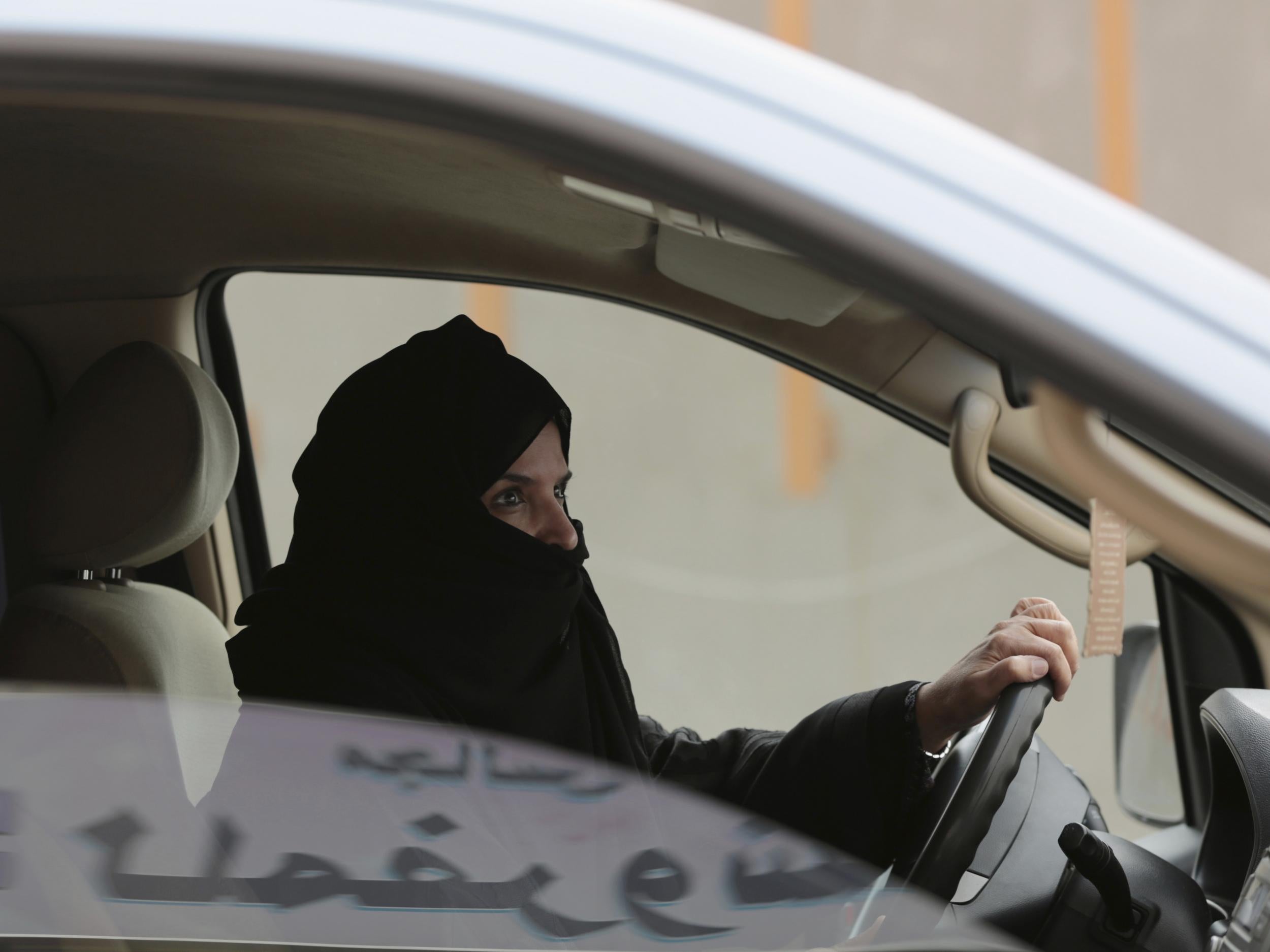Saudi Arabia issues first driving licences to 10 women ahead of ban being lifted
Group of 10 allowed to swap licenses obtained in other countries

Your support helps us to tell the story
From reproductive rights to climate change to Big Tech, The Independent is on the ground when the story is developing. Whether it's investigating the financials of Elon Musk's pro-Trump PAC or producing our latest documentary, 'The A Word', which shines a light on the American women fighting for reproductive rights, we know how important it is to parse out the facts from the messaging.
At such a critical moment in US history, we need reporters on the ground. Your donation allows us to keep sending journalists to speak to both sides of the story.
The Independent is trusted by Americans across the entire political spectrum. And unlike many other quality news outlets, we choose not to lock Americans out of our reporting and analysis with paywalls. We believe quality journalism should be available to everyone, paid for by those who can afford it.
Your support makes all the difference.A group of 10 women have become the first to be issued driving licenses in Saudi Arabia, as the kingdom prepares to lift its ban on female drivers in less than three weeks time.
The Middle Eastern country said in a statement that they already held licenses from other countries including the US, UK, Lebanon and Canada, so they were able to swap them for Saudi ones.
They each took a driving test and eye exam before being given the documents at the General Department of Traffic in the country's capital, Riyadh.
International news reporters were not present to witness the swap in the only country in the world which prevents women from getting behind the wheel.
Some of those who have protested the ban and campaigned for the right to drive have been arrested and are facing trial.
Other women across the country have been preparing to get their licenses on 24 June by taking driving courses on female-only college campuses. Some are said to be planning to become Uber drivers.
Saudi women had long complained about having to hire costly male drivers, use taxis or rely on male relatives to get to work and run errands.
The surprise decision to issue licences to some women early came as activists who had campaigned for the right to drive remained under arrest, facing possible trial.
Saudi Arabia’s prosecutor said over the weekend that 17 people had been detained in recent weeks on suspicion of trying to undermine security and stability - a case activists said targeted prominent women’s rights campaigners.
Eight have been temporarily released, while five men and four women remain under arrest, the prosecutor said.
Among the women held since 15 May are Loujain al-Hathloul, Aziza al-Yousef and Eman al-Nafjan, according to people with knowledge of the arrests.
The three are among the most outspoken and well-known women’s rights activists in Saudi Arabia. They risked arrest by pushing for the right to drive for years, while also calling for an end to guardianship laws that give male relatives final say over a woman marrying or travelling abroad.
They now face a string of charges including communicating with people and organisations hostile to the kingdom and providing financial and moral support to hostile elements abroad.
State-linked media have referred to the group as “foreign embassy agents” and branded them traitors.
Three other veteran women’s rights activists were briefly detained at the onset of the sweep. They had taken part in the first protest in 1990 against the kingdom’s ban on women driving.
Nearly 50 women took part in the first driving protest around 28 years ago. The women were arrested, lost their jobs, had their passports confiscated for a year and faced severe stigmatisation. Others were detained over the years during various efforts by women’s rights activists to drive.
While Saudi law has never explicitly banned women from driving, women were not issued driving licences. Often, police would detain a female driver until a male relative could pick her up and sign a pledge on her behalf that she would not drive again.
Hard line conservatives viewed women driving as immoral and warned they would be subject to sexual harassment if they drove.
Four years ago the country’s top cleric, Grand Mufti Abdulaziz Al Sheikh, said barring women from driving “was in the best interest of society” because it protected them from having to deal with an accident.
The kingdom is currently facing steep economic challenges and has a burgeoning young population that has access to the world through the internet where women in neighbouring Muslim countries drive freely.
To boost the economy and ease international criticism, Saudi Arabia’s 32-year-old Crown Prince Mohammed bin Salman has been promoting changes, such as the decision to allow women to drive, despite risking backlash from clerics and others who adhere to the ultraconservative Wahhabi interpretation of Islam.
The prince has also attempted to appeal to young Saudis by opening the country to more entertainment, allowing music concerts and bringing the first commercial movie theatre to Saudi Arabia this year. Black Panther was the first film to be shown.
However, rights groups say the arrest of activists by the crown prince’s security forces are an attempt to silence dissent as women prepare to drive for the first time, and may be a way to freeze any calls for greater reforms.
The spokeswoman for the United Nations High Commissioner for Human Rights, Liz Throssell, has described the crackdown as “perplexing”.
She said: “If, as it appears, their detention is related solely to their work as human rights defenders and activists on women’s issues, they should be released immediately."
AP
Join our commenting forum
Join thought-provoking conversations, follow other Independent readers and see their replies
Comments